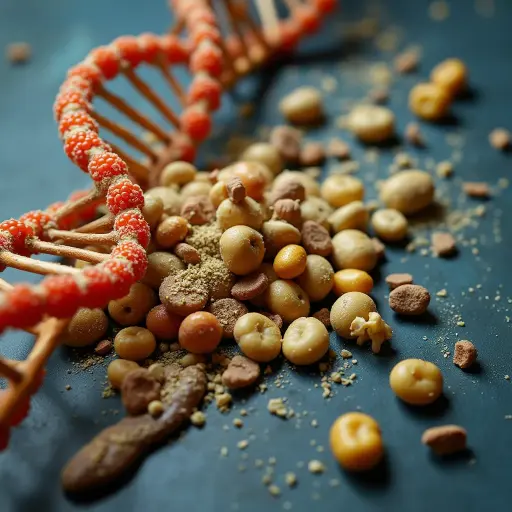Scylex Lab
23-Oct-2024
Breaking Down Carbs: Why Genetic Factors Cause Metabolic Differences
Carbohydrates are essential macronutrients that provide the body with its primary energy source. But did you know that your genes significantly influence how your body processes carbohydrates? Let's dive into the world of carbohydrate metabolism, the role of genetics, and how individual differences can impact your body’s response to carbs.
Understanding Carbohydrates
Carbohydrates consist of:
-
Sugars are simple carbs that include glucose, fructose, and sucrose.
-
Starches are known as complex carbs and they are found in foods like potatoes, bread, and pasta.
-
Fiber is another complex carb that our bodies can’t fully digest. Fiber is typically found in fruits, vegetables, beans or lentils, and whole grains.
Digestion of carbohydrates begins in the mouth. Salivary amylase, known as enzyme AMY1, starts breaking down starches into simpler sugars. The amount of AMY1 in your saliva varies from person to person and impacts how efficiently you digest starches. Individuals with more copies of the AMY1 gene tend to break down starches more rapidly, which may affect hunger, fullness, and blood sugar levels.
Absorption of Carbohydrates
After digestion in the mouth and stomach, simple sugars are then absorbed in the small intestine. GLUT2 (a glucose transporter protein encoded by the SLC2A2 gene) moves glucose from the intestine into the bloodstream. From there, glucose is transported to various cells for energy. This process is regulated by insulin, a hormone released by the beta cells of the pancreas. Insulin facilitates glucose uptake into cells by activating GLUT4 (another glucose transporter protein encoded by the SLC2A4 gene). GLUT4 transports glucose into muscle and fat cells.
Genetic variations can impact how effectively GLUT2 and GLUT4 transport glucose, influencing blood sugar levels and energy availability. For instance, certain variants of the SLC2A4/GLUT4 gene may reduce glucose uptake into cells, potentially leading to insulin resistance and higher blood sugar levels.
Utilization of Carbohydrates
Once glucose is transported inside the cells, it is either used immediately for energy or it gets stored as glycogen in the liver and muscles. Glycogen is a storage form of glucose that can be converted back to glucose when needed, such as during physical activity or fasting.
Some genetic factors affect how efficiently glycogen is stored and utilized. For example, the KCNJ11 gene influences insulin secretion, influencing how well your body regulates blood sugar levels. Additionally, some FGF21 gene variants are associated with increased cravings and consumption of sweet foods.
Summary
Your genetic makeup determines so much about you! Variants in genes FGF21, SLC2A4/GLUT4, GLUT2, AMY1, and KCNJ11 can result in diverse metabolic responses due to their impact on carbohydrate metabolism and sweets cravings. Some people might be genetically predisposed to higher insulin sensitivity, while others may have a tendency toward insulin resistance.
These genetic variations may influence your risk of developing conditions like obesity, type 2 diabetes, and metabolic syndrome, as well as your ability to lose weight or maintain a healthy weight. Understanding your genetic predispositions can provide valuable insights into how your body processes carbohydrates and responds to different types of carbs.
Nutrigenomic testing can provide you with personalized insights into your unique metabolic profile. With this knowledge, you can tailor your diet to support your health goals more effectively, reduce your risk for conditions like type 2 diabetes, and optimize your energy levels.


